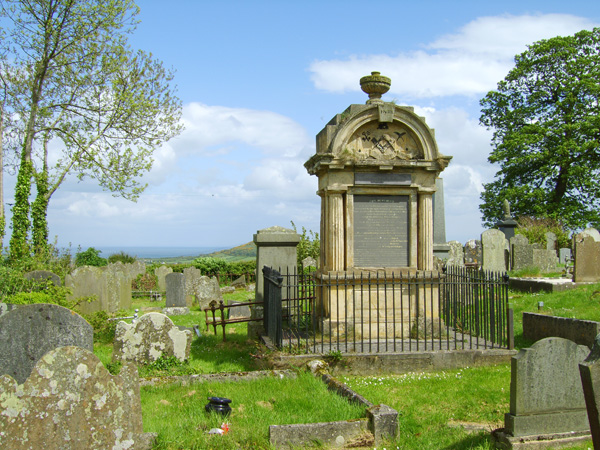Tonight, as Patron of the Dalaradia Historical group , I attended, with my colleague in Pretani Associates, Helen Brooker, the Second Annual Dalaradia Burns Supper at Whiteabbey Masonic Centre, Newtownabbey..The Dalaradia Burns Supper is unique in that it focuses on the local Dalaradian poet James Orr of Ballycarry and his work.
James Orr (1770 – 24 April 1816) was a poet or rhyming weaver from Ulster also known as the Bard of Ballycarry, who wrote in English and Ullans or Ulster Scots. He was the foremost of the Ulster Weaver Poets, and was writing contemporaneously with Robert Burns. According to that other great Ulster poet, John Hewitt, he produced some material that was better than Burns, including his masterpiece ” The Irish Cottier’s Death and Burial“.
Orr joined the patriotic Society of United Irishmen, or Libertymen as they knew themselves, in 1791 and took part in the Presbyterian Irish Rebellion of 1798. The United Army of Ulster, of which he was a part, was defeated at the Battle of Antrim and after a time hiding from the authorities, he fled to America. He remained there for a short time, earning a living by working for a newspaper, but returned to Ballycarry in 1802 under an amnesty. He died in Ballycarry in 1816 at the age of 46.
An imposing monument to Orr, erected by local Freemasons in 1831, is sited in the Templecorran cemetery near Ballycarry, in memory of the great Mason and Ulster Weaver Poet. Orr had been a charter member of the Lodge, so that it was appropriate that the Dalaradia Burns Supper is held in Whiteabbey Masonic Centre.
In 1992, I published, under my imprint, Pretani Press, the three-volume Folk Poets of Ulster series , thus initiating the modern Ulster-Scots revival in Northern Ireland. The three titles in the series were: The Country Rhymes of James Orr, the Bard of Ballycarry 1770-1816; The Country Rhymes of Hugh Porter, the Bard of Moneyslane c. 1780; and, The Country Rhymes of Samuel Thomson, the Bard of Carncranny 1766-1816, all published by Pretani Press, Bangor, 1992. Series editors: J.R.R. Adams and P.S. Robinson.
I had also suggested the new name “Ullans” for an Ulster-Scots Academy which I proposed in June 1992, and formally established in Northern Ireland following a meeting in Vancouver, British Columbia, Canada, between Professor Robert Gregg and myself on Thursday, 23rd July that year. The Ullans Academy was to be based on the Frisian Academy of Sciences in the Netherlands, which I had visited in 1978, and again in 1980, with a group of community activists from Northern Ireland, including Andy Tyrie, then Chairman of the Ulster Defence Association, and now Patron of the Ulster-Scots (Ullans) Academy. The essential characteristic of the Frisian Academy was its division into three departments: Linguistics and Literature, History and Culture, and Social Sciences. This tripartite division was to become our model.
The new Ullans Academy was intended to fulfil a need for the regulation and standardisation of the language for modern usage. These standards were to have been initiated on behalf of the Ulster-Scots community, Protestant and Roman Catholic, nationalist and unionist, and would be academically sound. What we didn’t need was the development of an artificial dialect which excluded and alienated traditional speakers . It seemed clear to me that it was fundamentally important to establish a standard version of the language, with agreed spelling, while at the same time maintaining the rich culture of local variants.
Therefore in 1995, I published for the Ulster-Scots Language Society, of which I was founding chairman, a regional dictionary by James Fenton, The Hamely Tongue: A Personal Record of Ulster-Scots in County Antrim , under the imprint of the Ulster-Scots Academic Press, from my premises in 17 Main Street, Conlig, County Down. This was the most important record yet produced of current Ulster-Scots speech and is now, under the imprint of the Ullans Press, in its third edition. It was distributed by my friend David Adamson, who did so without remuneration.
Like the Frisian Academy on which it was based, the Ulster-Scots or Ullans Academy’s research was intended to extend beyond language and literature to historical, cultural and philosophical themes such as the life and works of Frances Hutcheson and C.S. Lewis, and to studies of the history of Ulidia in general, especially Dalriada, Dalaradia, Dal Fiatach, Manapia, Iveagh, Oriel, Venniconia, Galloway and Carrick, not forgetting Ellan Vannin, the Isle of Man.
The Chairman opened tonight’s event by outlining the important work of the group over the past year. The format of a traditional Burns Supper was then followed including Burns’ “Address to a Haggis“. I myself recited Orr’s brilliant political poem “To The Potatoe“..and later his “Elegy on the Death of Mr Robert Burns, the Ayrshire Poet“, which is unrivalled in its pathos. Helen Brooker, Community Distribution Director for the Ullans Academy then presented copies of The Bible in Plain Scots to the guests of the evening…Altogether another great success for The Dalaradia group.
